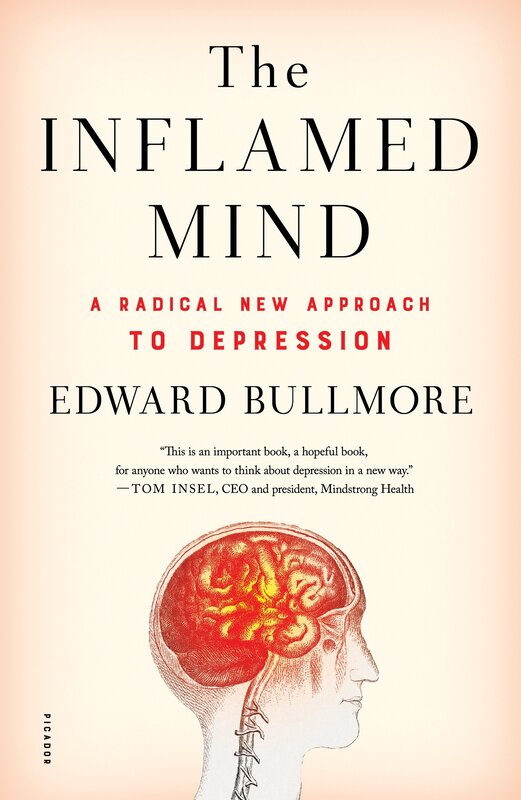Photo Credit: Timeline (World History Documentaries)
UNDER Construction
4th revision 8/24/2019 @ 4:51 P.m.
2019

Autoimmunity in psychotic disorders. Where we stand, challenges and opportunities.
Autoimmunity Reviews (Sept. 2019)
Abstract |
Your browser does not support viewing this document. Click here to download the document.
|
|
An update on anti-NMDA receptor encephalitis for neurologists and psychiatrists: mechanisms and models (July 2019) |
Summary |
2018
|
PsychScene Hub (2018)
Immune Dysregulation in Bipolar Disorder and 3 Important Autoimmune Neuropsychiatric Disorders Dr. Sanil Rege is a Consultant Psychiatrist and founder of Psych Scene (a platform to enhance psychiatry education) and Vita Healthcare, providing high-quality mental health care services to the public. He is a Fellow of the Royal Australian and New Zealand College of Psychiatrists and Member of the Royal College of Psychiatrists (UK). Dr Sanil Rege begins with an overview of immune dysregulation in bipolar disorder and the role of cytokines in neuroinflammation. Dr. Rege discusses neuropsychiatric systemic lupus erythematosus (NPSLE) and talks about the pathogenesis of the disease. He covers the association of encephalopathy with synaptic antibodies and management of synaptic encephalitis. The next autoimmune disease covered is autoimmune thyroiditis and he discusses treatment using steroids, concluding the presentation with a list of symptoms and signs that should raise suspicion for autoimmunity. |
|
|
Neuroscience News (2018) In one of the biggest breakthroughs in schizophrenia research in recent times, Professor Cynthia Shannon Weickert from Neuroscience Research Australia (NeuRA) and UNSW Sydney has identified immune cells in greater amounts in the brains of some people with schizophrenia. https://neurosciencenews.com/schizophrenia-immune-cells-9867/ |
|
Your browser does not support viewing this document. Click here to download the document.
|
|
What Causes Schizophrenia?
Inflammatory Psychosis (2018) This talk focuses on observations that excessive or misdirected inflammatory responses can cause symptoms of psychosis. There are numerous examples of autoimmune illnesses causing symptoms that closely resemble schizophrenia. It’s also clear that chronic inflammation is not only a risk factor for developing schizophrenia, but also can negatively impact the clinical course of people with schizophrenia. An unresolved dilemma is whether inflammation is a contributing factor to schizophrenia – or whether “inflammatory psychosis” is a distinctly different illness that produces symptoms more or less identical to classically-defined schizophrenia. Another unsettled question is the extent to which inflammation-reducing drugs are likely to help people with schizophrenia. If so, is this a benefit that can be expected by anyone with schizophrenia? Or would the benefit only apply to those with blood tests that show an inflamed state. These are important questions in light of numerous case reports of psychosis being caused by over-the-counter anti-inflammatory medications such as aspirin, indomethacin, ibuprofen, etc. The lecture is part of Northeast Ohio University's education(+)consultation service, SZconsult. A powerpoint file for this lecture is available at http://szconsult.org/ |
|
|
|
2017
|
‘Drain Pipes’ in the Brain: Lymphatic Vessels Act As Pipeline Between Brain and Immune System (2017) |
|
|
Immune System linked to Alcohol Drinking Behavior (2017) http://neurosciencenews.com/immune-system-alcohol-7494/ |
|
The Journal Intelligence (2017)
Hyper Brain, Hyper Body: The Trouble With High IQ [Orchid: We think this probably applies to most people with different types of "giftedness" --probably not just High IQ -- because "overexcitabilities" are seen across the "giftedness" spectrum] "A new study in the journal Intelligence reports that highly intelligent people have a significantly increased risk of suffering from a variety ofpsychological and physiological disorders. "Lead author of the study, Ruth Karpinski, says the findings have implications both for the study of intelligence and for psychoneuroimmunology, which examines how stress responses to the environment influence communication between the brain and immune system. “Our findings are relevant because a significant portion of these individuals are suffering on a daily basis as a result of their unique emotional and physical overexcitabilities. "It is important for the scientific community to examine high IQ as being front and center within the system of mechanisms that may be at play in these dysregulations,” she says. "Karpinski and her colleagues developed a hyper brain / hyper body theory of integration. "It posits that individuals with high cognitive ability react with an overexcitable emotional and behavioral response to their environment. "Due in part to this increased awareness of their surroundings, people with a high IQ then tend to experience an overexcitable, hyperreactive central nervous system." https://neurosciencenews.com/iq-hyper-brain-body-7720/ |
|
What Does The Environment Have To Do With Diseases Affecting The Immune System
The rise in recent decades of diseases such as inflammatory bowel disease and rheumatoid arthritis suggests that factors in the environment are contributing. (2017)
https://ensia.com/features/environment-diseases-immune-system/
The rise in recent decades of diseases such as inflammatory bowel disease and rheumatoid arthritis suggests that factors in the environment are contributing. (2017)
https://ensia.com/features/environment-diseases-immune-system/
2016
|
Immune System Affects and Controls Social Behavior
-----University of Virginia School of Medicine (July 2016) |
|
|
Lancet Psychiatry (April 2016)
A Clinical Approach to Diagnosis of Autoimmune Encephalitis |
Your browser does not support viewing this document. Click here to download the document.
|
2015
|
Disorders Share Risk Gene Pathways for Immune, Epigenetic Regulation Genome-wide findings add to evidence blurring traditional psychiatric categories January 29, 2015 Genes that confer risk for schizophrenia, bipolar disorder, and depression most strongly work through pathways involved in the process of histone methylation, an epigenetic mechanism that regulates the switching on-or-off of genes in response to environment and experience. Disruption in these pathways prenatally could adversely affect brain development, suggest the researchers. https://www.nimh.nih.gov/news/science-news/2015/disorders-share-risk-gene-pathways-for-immune-epigenetic-regulation.shtml |
2014
|
Elevated Risk for Autoimmune Disorders in Iraq and Afghanistan Veterans with Post-Traumatic Stress Disorder (2014) http://www.biologicalpsychiatryjournal.com/article/S0006-3223(14)00457-0/fulltext |
|
Mind Body Scientists Identify Immune System Link to Mental Illness University of Cambridge (2014) https://www.cam.ac.uk/research/news/mind-and-body-scientists-identify-immune-system-link-to-mental-illness |
2013
|
Journalist Susannah Cahalan's New York Times Bestseller "Brain On Fire" (Aug. 2013) NOW A MAJOR MOTION PICTURE STARRING CHLOË GRACE MORETZ An award-winning memoir and instant New York Times bestseller that goes far beyond its riveting medical mystery, Brain on Fire is the powerful account of one woman’s struggle to recapture her identity. When twenty-four-year-old Susannah Cahalan woke up alone in a hospital room, strapped to her bed and unable to move or speak, she had no memory of how she’d gotten there. Days earlier, she had been on the threshold of a new, adult life: at the beginning of her first serious relationship and a promising career at a major New York newspaper. Now she was labeled violent, psychotic, a flight risk. What happened? In a swift and breathtaking narrative, Susannah tells the astonishing true story of her descent into madness, her family’s inspiring faith in her, and the lifesaving diagnosis that nearly didn’t happen. “A fascinating look at the disease that...could have cost this vibrant, vital young woman her life” (People), Brain on Fire is an unforgettable exploration of memory and identity, faith and love, and a profoundly compelling tale of survival and perseverance that is destined to become a classic. |
|
The Brain-Immune -Gut Triangle: Innate Immunity in Psychiatric & Neurological Disorders (Jan. 2013) https://www.researchgate.net/publication/261994663_The_Brain-Immune-Gut_Triangle_Innate_Immunity_in_Psychiatric_and_Neurological_Disorders |
Your browser does not support viewing this document. Click here to download the document.
|
2012
|
Childhood Trauma Can Result in Chronic Inflammation which can affect the Immune System (2012) http://www.medicaldaily.com/childhood-trauma-can-result-chronic-inflammation-241114 |
2011
Journal of Neuropsychiatry & Clinical Neuroscience (2011)
The Emerging Link Between Autoimmune Disorders and Neuropsychiatric Disease
https://www.ncbi.nlm.nih.gov/pmc/articles/PMC3086677/
The Emerging Link Between Autoimmune Disorders and Neuropsychiatric Disease
https://www.ncbi.nlm.nih.gov/pmc/articles/PMC3086677/
2007
|
Anti-NMDA Receptor Encephalitis.
First described by Dr. Josep Dalmau in 2007 |














